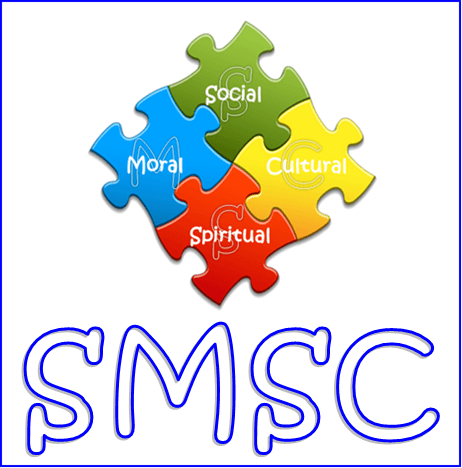Spiritual, moral, social, cultural (SMSC)

SMSC stands for spiritual, moral, social and cultural development. All schools in England must show how well their pupils develop in SMSC.
At Watton at Stone Primary School, SMSC is at the heart of everything we do and say. We teach SMSC throughout our curriculum. It does not stand alone. Some opportunities provide very clear teaching experiences, such as: assemblies, celebrations, RE lessons and PSHE lessons. Our entire school community seize every opportunities to grow rounded children.
Spiritual
Explore beliefs and experience; respect faiths, feelings and values; enjoy learning about oneself, others and the surrounding world; use imagination and creativity; reflect.
Pupils’ spiritual development is shown by their:
- ability to be reflective about their own beliefs, religious or otherwise, that inform their perspective on life and their interest in and respect for different people’s faiths, feelings and values
- sense of enjoyment and fascination in learning about themselves, others and the world around them
- use of imagination and creativity in their learning willingness to reflect on their experiences.
In our school, we demonstrate this through our:
- RE curriculum
- PSHE curriculum
- Assemblies
- Metacognition
- Humanities curriculum
- Links with local religious groups
Moral
Recognise right and wrong; respect the law; understand consequences; investigate moral and ethical issues; offer reasoned views.
Pupils’ moral development is shown by their:
- ability to recognise the difference between right and wrong and to readily apply this understanding in their own lives, recognise legal boundaries and, in so doing, respect the civil and criminal law of England
- understanding of the consequences of their behaviour and actions
- interest in investigating and offering reasoned views about moral and ethical issues and ability to understand and appreciate the viewpoints of others on these issues.
In our school, we demonstrate this through our:
- Behaviour for learning characteristics
- Democracy
- Role play
- PSHE
- Reflections on behaviour
- Class rules
- Debating
- Big Questions
- Assembly themes
- Fundraising for charities e.g. British Red Cross, Children in Need
- PSHE curriculum
- RE curriculum
- e-Safety
- eco club

Social
Use a range of social skills; participate in the local community; appreciate diverse viewpoints; participate, volunteer and cooperate; resolve conflict; engage with the British values of democracy, the rule of law, liberty, respect and tolerance.
Pupils’ social development is shown by their:
- use of a range of social skills in different contexts, for example working and socialising with other pupils, including those from different religious, ethnic and socio-economic backgrounds
- willingness to participate in a variety of communities and social settings, including by volunteering, cooperating well with others and being able to resolve conflicts effectively
- acceptance and engagement with the fundamental British values of democracy, the rule of law, individual liberty and mutual respect and tolerance of those with different faiths and beliefs; they develop and demonstrate skills and attitudes that will allow them to participate fully in and contribute positively to life in modern Britain.
In our school, we demonstrate this through our:
- Extensive range of extra curriculum activities
- Nursery lunch club
- Shared reading between classes
- Assemblies
- Whole school trips
- Class discussions
- Talk partners
- PSHE curriculum
- Drama
- Sports with other schools
- Behaviour for learning
- School trips
- Show and tell
- International Day
- Pupil Parliament
- e-Safety
- eco club
- house teams
- Sports Day
- Enterprise Days
Cultural
Appreciate cultural influences; appreciate the role of Britain's parliamentary system; participate in culture opportunities; understand, accept, respect and celebrate diversity.
Pupils’ cultural development is shown by their:
- understanding and appreciation of the wide range of cultural influences that have shaped their own heritage and those of others
- understanding and appreciation of the range of different cultures within school and further afield as an essential element of their preparation for life in modern Britain
- knowledge of Britain’s democratic parliamentary system and its central role in shaping our history and values, and in continuing to develop Britain
- willingness to participate in and respond positively to artistic, musical, sporting and cultural opportunities
- interest in exploring, improving understanding of and showing respect for different faiths and cultural diversity and the extent to which they understand, accept, respect and celebrate diversity, as shown by their tolerance and attitudes towards different religious, ethnic and socio-economic groups in the local, national and global communities.
In our school, we demonstrate this through our:
- Theatre trips
- International Week
- MFL
- Music lessons
- Stories from other cultures
- Famous artist studies in art
- World book day
- School productions
- Whole school panto
